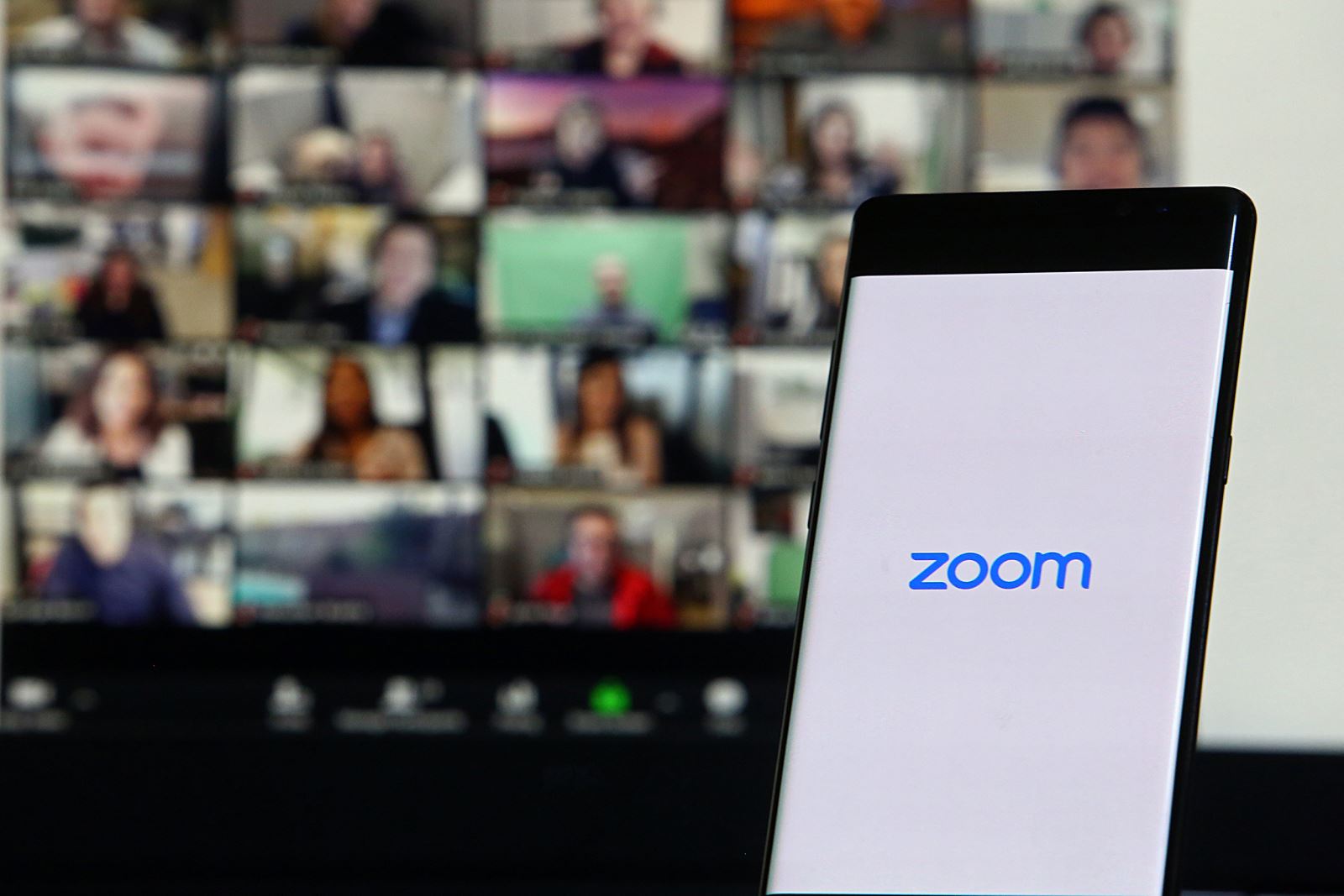Paul Darling OBE QC, from 39 Essex Chambers, offers his insight as an Advocate in the first remote trial in the Technology and Construction Court - hosted on Zoom.
You recently appeared as an Advocate in the first remote trial in the Technology and Construction Court. Was that course agreed between the parties or ordered by the Court?
The default position during Covid was that hearings would proceed remotely. This approach is becoming more flexible as we return from Covid with a mix of remote and partly remote hearings. The Judge in this trial, Mrs Justice Jefford, decided that this case - which was dealt with early in the current crisis - was suitable for a remote hearing and refused to adjourn it.
 How did the hearing work?
How did the hearing work?
Our hearing was conducted on Zoom. On the screen were the Advocates and the Judge and the witness. Other observers were the Clients, Solicitors, future witnesses, the Public and Press who watched through a separate feed. Everyone was in different locations, very largely at home. Subject to that, the hearing was run just like an ordinary hearing.
How did you deal with the provision of documents to the Judge, the Advocates and Witnesses?
There are any number of ways in which you can do this. In our case, we had an electronic bundle which was available online. The Judge, Counsel, Solicitors and Clients had a hard copy bundle. The Judge suggested that Experts should have their own and their opponent’s reports in hard copy with them. For my cross-examination of the Defendant’s factual witness, I prepared a “mini Bundle” of the documents to which I proposed to refer. That was sent to the witness. It shortened the cross-examination. Showing documents on screen – whether the same screen or a different one - is the way forward. Every-one sees the document at the same time and there is no scrabbling around to find it.
Was any extra preparation needed to enable the hearing to happen?
Preparation for the hearing phase was different. In document preparation you had to remember that sharing a document during the hearing is a different process remotely than in a court room. Submissions and questions need to be more concise and therefore even better prepared.
You opened the case to the Judge. Was that different from being in court?
In the early days of technology, one cannot see facial expressions as easily in a remote hearing as one can in real life. It is a bit more difficult to pick up the Judge’s facial expressions than it would be in a court room. I also think that in remote trials, interaction between Counsel and the Bench is more difficult. This would impact more in closing submissions.
There were witnesses who gave evidence. How different was that from real life? Did you feel any disadvantage when cross-examining witnesses? Do you think the witness felt any disadvantage?
The first point to make is that in my view witnesses giving evidence from home are less intimidated and more relaxed. People present differently on screen to in real life. Before our case settled, I cross-examined the Defendant’s main witness for a day. I do not think that the experience for either of us was much different to what it would have been in a Court room. There was a greater distance between us because the witness was not in the same room and only visible through a television screen. On the other hand, the television screen had me and the witness close together. I could see his face on the screen in front of me rather than looking at a figure 15 feet away across the Court. Whilst it is inevitably more difficult to ask a witness to pause in the remote hearing than in Court, that too can be solved by good judging, as it was in our case. Easy access to documents is critical for both Counsel and the witness.
People have suggested that the risk of witnesses having documents that they should not have, or being coached, is greater in a remote trial than in Court. What do you think?
This is a real problem. If you cannot see the witness’ environment, then there is a potential problem. We had an entirely innocent illustration of that in our case. The witness, when answering one of my questions, referred to a document. It was apparent that he had available to him a document that nobody else had. We discovered that because he said so. The Judge was then able to deal with it. However, if the witness had not referred to it, then those at the end of video links might not have known it was there. I have heard tales of witnesses being helped with answers by the person assisting them with the Bundle. There are techniques to avoid this, the panning camera and the software used to invigilate exams being two illustrations of it.
How would a remote trial work in relation to the giving of expert evidence?
There are several points to be made here. First, and most easily, I see no difficulty at all in experts giving conventional evidence remotely rather than live in Court. If anything, expert evidence is more suitable for a remote trial than factual evidence. The careful detailed analysis of an expert’s view is well suited to a remote hearing. Our Judge’s suggestion that the experts have hard copies of their own and their opposite number’s reports was a good one.
Second, I do not think that witness conferencing or hot-tubbing will work well remotely. Being in the same room does seem to me to be important for this form of interaction.
I have heard of another advantage of remote procedure: Arbitrators being able to have Video Conferences with both experts as part of the pre-trial phase. I can see that working well.
How did your Solicitors and Clients feel about the process? Was it difficult for you and them to communicate during the hearing?
My Clients were nervous about a remote trial before it happened. By the end, they were entirely content. My Solicitor - Bill Barton of Barton Legal – embraced the process fully. His preparation for the remote approach was key to it succeeding. There was little difficulty with communication during the Hearing; we used WhatsApp. More problematical were pre and post hearing meetings. Rather than a quick chat outside the hearing, there had to be a pause whilst the Zoom was set up etc.
Your trial used Zoom – How did that work and were there security issues with that?
Zoom worked very well. We had a trial controller who managed the technology- in my view, a must. Screen share enabled documents to be shown that were not available to people in their locations. We had no security issues. Zoom can be set up with appropriate security settings.
 What other platforms are there, and do you have any views about their effectiveness?
What other platforms are there, and do you have any views about their effectiveness?
There are many platforms, for example Skype for Business, Microsoft Teams and Blue Jeans. They all have their merits and strengths. What is key is your own technology. The quality of your microphone, camera and internet connection are critical. Document management is also important here. If someone had told me at Christmas that I would now be debating, passionately, the merits of various PDF editing Apps, I would have told them there were mad.
In Court, there is a concern about public access to remote trials? Do you think that is a problem?
It is ironic that in Court, the concern is that the public cannot get access to the remote hearing. In Arbitration, the concern is that they can. Proper systems of public access to trials are growing fast. There is the tension that recording a trial is illegal. About 30 people a day watched our trial, rather more than the couple of “mini pupils” you would normally get.
How do you see the future? Are remote trials here to stay?
Our trial was a great success. The Judge ran it effectively and just like an ordinary trial. There are, however, challenges. As well as witness interference, there is the fatigue factor – concentrating on remote trials is said to be a heavier burden than in a Court Room. I was on my feet for most of the trial and therefore had the adrenaline running, and did not notice it but it is, apparently, a well understood phenomenon. There are several categories of remote and partly remote trials. There is currently an 8-week Commercial Court Trial being heard with the Judge and Counsel in Court and others attending remotely. The one thing that is clear is that the days of everyone being automatically required to be in the same physical Court Room are gone. There will be much more flexibility.
For this Advocate, remote trials are a very welcome development.